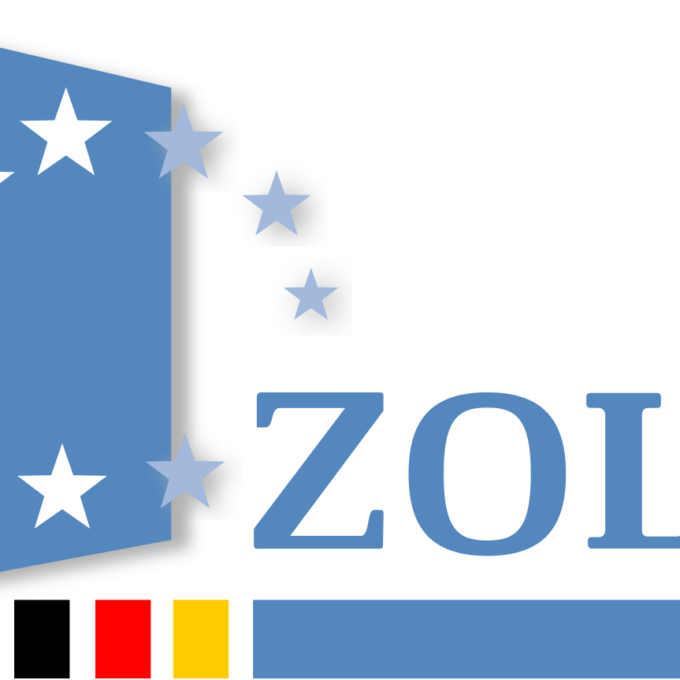Publications 23.05.2025
Customs Office: What Employers Forget When Posting Employees to Germany?

Basic Obligations
Regardless of whether an employer faces the necessity to send their employees to Germany to provide services for contractors, or sends them to their own business in Germany, they must comply with the German regulations on posted workers, implementing the relevant EU directives. A similar situation occurs when a German company uses the services of a temporary work agency to hire a worker from Poland for work in its business. However, simply meeting local working conditions is sometimes insufficient to ensure full legal compliance with the posting process. This is due to additional administrative obligations imposed on employers related to inspections by customs authorities.
The Directive of the European Parliament and of the Council (EU) 2018/957 of 28 June 2018 amending Directive 96/71/EC places an obligation on the employer to guarantee workers the same employment conditions as those applicable in the host country. These conditions relate primarily to:
- minimum rest periods
- maximum working hours
- minimum amount of paid annual leave
- wages (including all its mandatory components) specified in national law or generally applicable collective agreements
- occupational health and safety
- protective measures for pregnant women, women directly after childbirth, and young workers (under 18 years old)
- equal treatment of women and men
- worker accommodation conditions in the host country, if provided by the employer
- allowances or reimbursement of travel, meal, and accommodation costs when required during the posting period.
If employment conditions in the sending country (i.e., Poland) are more favourable for workers than those applicable in the host country, the more favourable conditions must be maintained during the posting.
If the posting lasts longer than 12 months (or 18 months if the employer submits a justified notification in the sending country), all other employment conditions applicable in the host country must be guaranteed, except for conditions regarding additional pension benefits and termination of the contract.
It should be remembered that if employees work in an industry covered in Germany by generally applicable collective agreements or (in the case of temporary work agencies) collective agreements binding exclusively at the user employer to whom the worker is posted, the working conditions established by the relevant collective agreement must be ensured (and not only those arising from German labour law provisions).
Social Security
Due to differences in social security contribution rates and to simplify settlements, employers often opt to pay employees’ contributions in Poland. To benefit from this, the employer must notify the administration of the sending country and apply for the PD A1 form (the so-called portable A1 document issued in Poland by the Social Insurance Institution, ZUS). The A1 document confirms that the posted worker is registered in the social security system of the sending country and does not have to pay contributions in the host country.
When applying for the A1 document, the start and end dates of posting in another EU country must be provided. The maximum posting period that can be specified is 24 months.
Zollamt
However, fulfilling the above obligations alone may prove insufficient. The implementing provisions of Directive 96/71/EC allow Member States to introduce additional requirements for employers posting workers to other Member States, and Germany has made use of this possibility. The additional requirements mainly concern control and record-keeping matters.
Article 9(1) of Directive 2014/67/EU, issued to improve enforcement of the Posted Workers Directive, permits the host Member State to require, prior to posting, the application of the following administrative measures in particular:
- a requirement to submit to the responsible national authorities a regular declaration, no later than at the start of the service provision, containing essential information necessary to enable inspection of the actual situation at the workplace, including:
- identification data of the service provider;
- the expected number of posted workers, along with data enabling their identification;
- contact person details;
- the expected duration of the posting, anticipated start and end dates;
- address(es) of the workplace(s); and
- the nature of the services justifying the posting;
- a requirement to designate a contact person for communication with the competent authorities of the host Member State;
- a requirement to designate a contact person who may act as a representative through whom the relevant social partners may, if necessary, encourage the service provider to commence collective bargaining in the host Member State.
In implementing these powers, German legislators introduced special reporting and documentation obligations monitored by the German Customs Office, i.e., Zollamt. These include registering posted workers with the Zollamt, keeping working time records and other documents translated into German, as well as appointing a special national representative (verantwortlich Handelnder) who acts as the contact person appointed by the employer and available to the control authority to facilitate the inspection procedure. Similar obligations arise for companies in Germany that employ workers hired through an agency based abroad.
The employer is obliged to immediately inform customs authorities of any changes in data, as well as to submit a statement confirming compliance with obligations to provide employees with appropriate working conditions, i.e., those required by the host country regulations (i.e., German law).
The source of these obligations are three separate German labour laws: the Minimum Wage Act (MiLoG), the Posted Workers Act (Arbeitnehmer-Entsendegesetz – AEntG), and the Temporary Employment Act (AÜG). Additional administrative obligations do not apply to all cases of posting (e.g., only certain industries are covered), so each posting case requires individual assessment in this respect.
Further articles will cover requirements for proper documentation and exceptions applicable to some industries, as well as possible consequences of inspections by German customs authorities.
Publications 23.05.2025
See also
Publications

A mistaken transfer can be costly. From whom can you seek a refund? Supreme Court ruling.
Publications

The Polish Deal in a nutshell – summary of changes in taxes and labour law
Publications
The free acquisition of assets from non-registered companies by the State Treasury is unconstitutional.